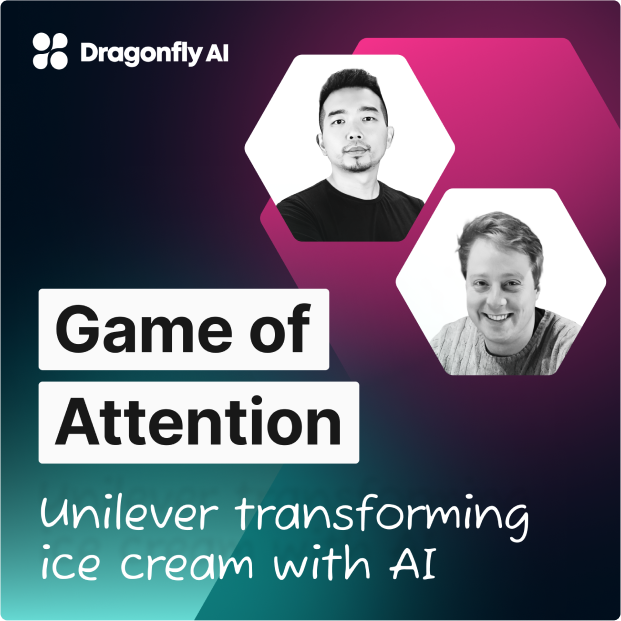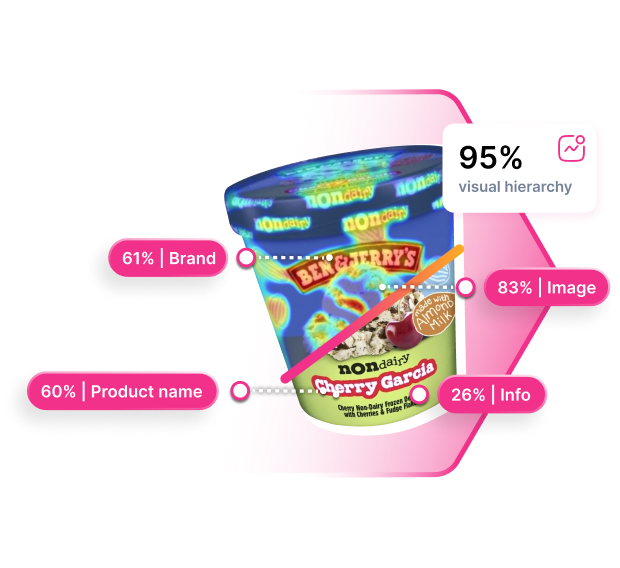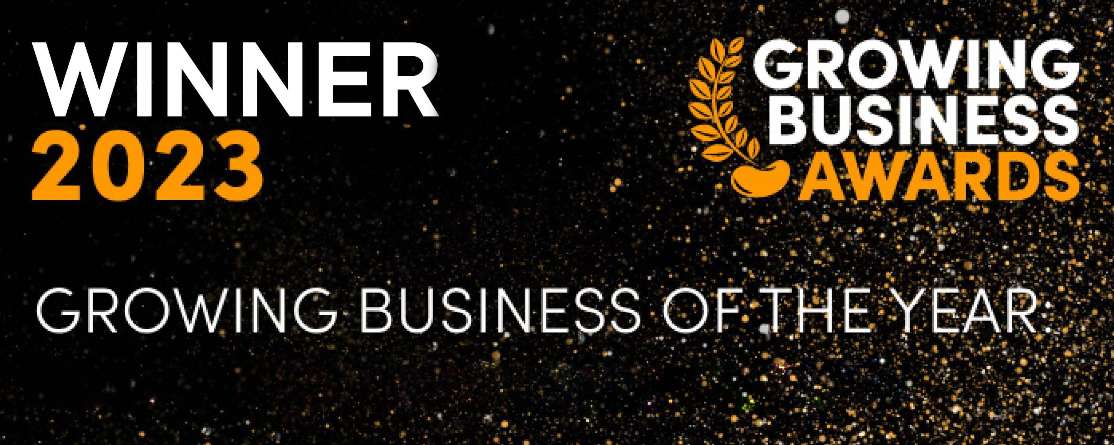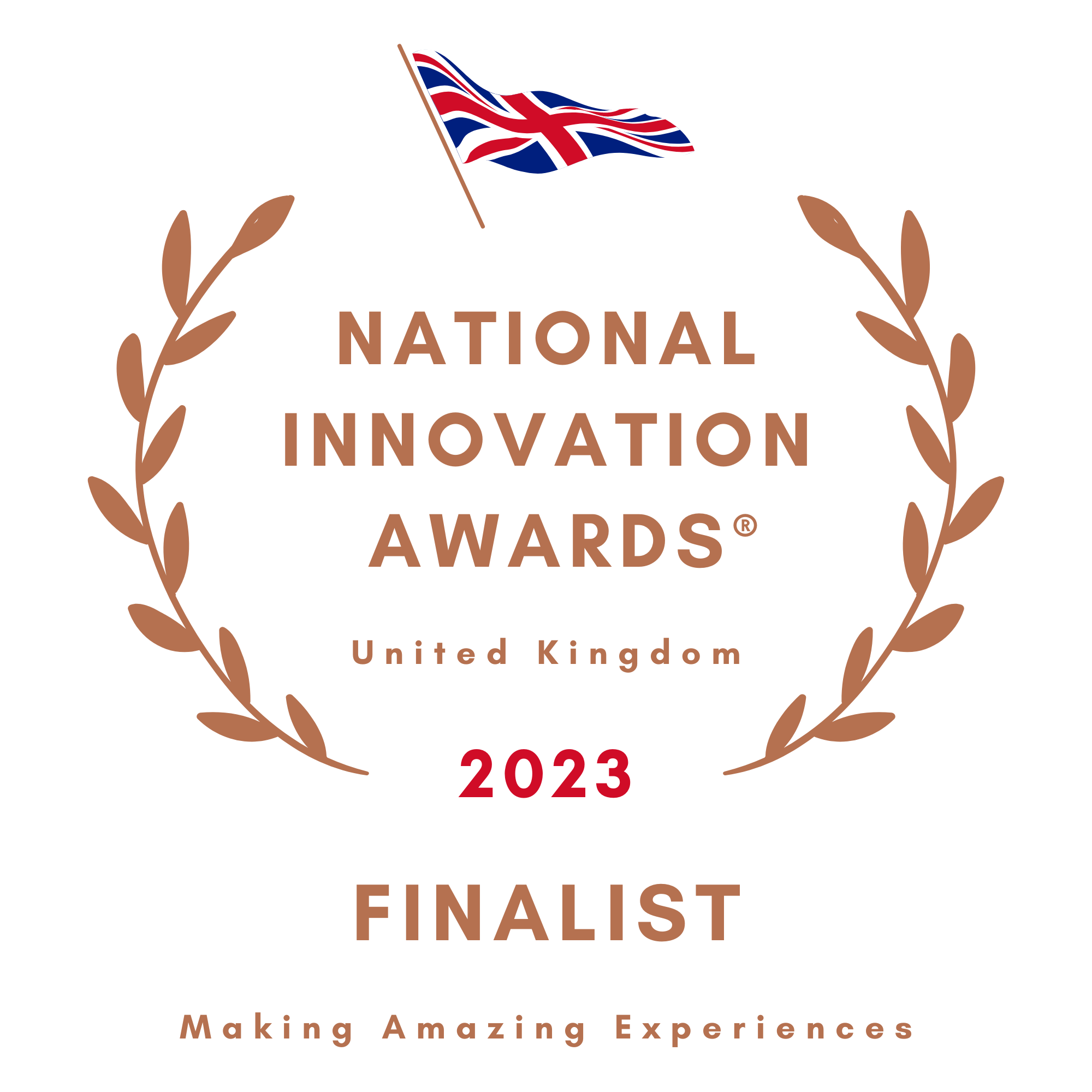Dragonfly AI is a predictive analytics platform designed to help you improve the quality and effectiveness of your creative across any format, channel and market.
Unilever is transforming ice cream with AI
Expert-led podcast discussing trending articles, and news in the AI and attention spaces.

Podcasts led by experts
Unilever is transforming ice cream with AI

Unilever has made monumental technological strides by implementing image capture and AI within 50,000 freezers. This helps them manage stock orders, submit orders and let stores know when stock is running low.
Retailers have also felt the benefits of this advancement with increases in sales of 15-35%.
James Hoblyn, Senior Strategic Account Exec, and Sean Xie, Head of Performance, got together to discuss this innovative advancement.
Q: Innovation has played a significant role in Unilever’s success with AI. How can CPG companies foster a culture of innovation and encourage collaboration to drive AI adoption?
Sean: From my perspective, I think one word is inevitability. Because of the scale of a company such as Unilever, which is so established, and global, they are essentially competing with all the challenger brands that are coming out. They have to innovate themselves in order to stay at the forefront of the attention economy.
James: I think there was a certain amount of skepticism about how AI could drive in terms of data collection. I think it was already there when you’re looking at it in terms of machine learning, and how it can speed up the reporting elements. It has been adopted quite early by insight and data analytics teams because obviously, they have so many different data channels. I think when we're thinking about predictive AI and how they can use AI sources in, so their data collection, I think that's been a really exciting movement over the past six to eight months based on two main areas that are often the driver of these things are big corporations that's down to time and costs. It's not to say that, you know, AI adoption is going to completely change the industry. You can't replace everything with AI, but there are certain areas, particularly with new product development, testing attention is a really good example of it. When you don't need to send out that new product design to someone to test, there are tools out there that can do it really, really quickly. We're reaching that sort of early adoption phase of things where businesses are seeing that they've used it, they're seeing the results from it.
Q: On that, do you think that there is kind of, I know obviously there are blockers within the industry, but do you think that there is a lack of awareness about how far creative testing can actually take success?
James: I think that there are societal blockers in it all as well. You know, people are still a little bit afraid when you say AI to someone. If I'm not on my A-game for my job at every single moment, you know, AI is going to turn around the corner and replace me in an instant. I think thanks to chat GPT getting involved in people's lives. People are seeing that actually, this isn't going to take my job. This is just going to make me better at my job. I think we're at that exact same moment with AI, with tools like Dragonfly and, you know, other generative and predictive AI tools, they're not going to replace the human, they're just going to make the human faster, sharper, and get to their inevitable assumption quicker.
Q: The article mentions AI being used to optimize advertising and marketing efforts. How can AI-powered marketing campaigns enhance customer targeting and lead to better ROI?
Sean: So, it's already been happening for many years. It's come to the spotlight recently simply because of, the launch of Chat GPT and the latest AI hype, right? So again, it's inevitable. It's been, I mean, I remember many years ago, mid, I would say 2015, 2016 already, using management platforms such as DoubleClick, which was owned by Google, that most of the campaign optimization work, for example, if we optimize campaign performance against a KPI such as conversion, most of the heavy lifting already being done by machine learning algorithms. Let's say you define a particular target of how many conversions that you wanted to achieve based on the data. that you've collected over the past X amount of period of time, the campaign would run its own magic, making sure that you'll hit your KPI, such as conversion target or cost per conversion, or ROI. The algorithm and the industry of AI would only accelerate the performance of that to the next level. I would imagine in the next 10 years that it will only reduce the amount of work that advertising professionals will need to work on things, but also it will increase the accuracy and efficiency of campaign management and company performance.
Q: And from a day-to-day basis, predicting attention on ads, how does that benefit your strategy for our targeting? Sean: It's kind of the first layer of objectives, right? If we can't capture our audience's attention as quickly and as cost-efficiently as possible, we're kind of not really getting anything. Depending on the campaign strategy, of course, depending on the campaign objectives. Let's say if we wanted to drive conversion for our campaigns, the first stop is actually to be able to capture the attention of our audience. Without that, there is no conversion to be talked about. I guess the most important element is how would tools, how advertising tools or tools that we use to optimize our campaign performance can help us understand the linkage through all the connections between attention to metrics such as click-through rate that proven that measures how engagement is like with our ads.
Q: We know that Unilever is using AI to create personalized ice cream flavors. How do you think this approach can impact customer loyalty and overall sales?
James: I mean, anything personalized gets right to the heart of the consumer, which always does well. I think personalization is always strived for within any organization. I think, you know, I mean, looking at the article, the cameras in the fridge and all that sort of stuff are pretty mind-blowing if you think where we were like five years ago, I think big companies like Unilever are only going to get more in tune. with how consumers are thinking in more clever ways, to be perfectly honest. I mean, we're used to people, I think now, sort of tracking your internet usage, finding out what you search, and then you see ads pop up. But now I think, you know, you look into what's happening on the high street, these Amazon fresh stores, you know, are tracking you as you walk into a shop. I'm interested to see where the, where it sort of balances out, where people are happy to have stuff personalized to them.
Unilever has set the standard with this level of AI innovation. James and Sean were both impressed with the technology and how it could impact the CPG industry, particularly from a predictive point of view
You can find the original article here, the resource for the Netflix comment is here.
Make sure to subscribe on LinkedIn or follow on Spotify because next month we will have two new guests in the hot seat discussing new strides in the industry!


